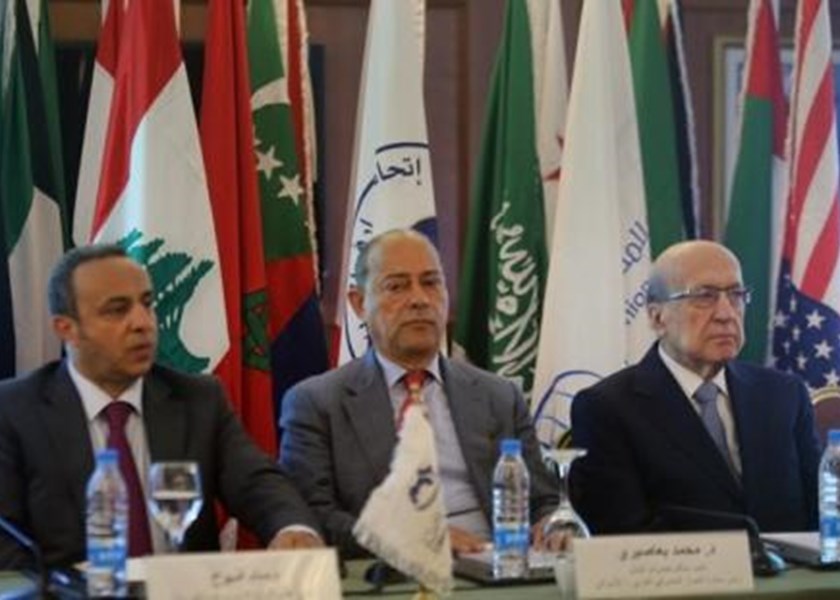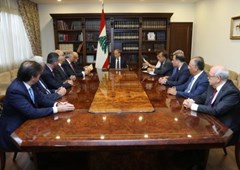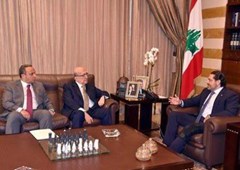
BEIRUT: Some Arab banks are facing difficulties in their relations with American correspondent banks due to the high risks in some countries and growing compliance demands, said Joseph Torbey, president of the Executive Committee of the Union of Arab Banks Thursday. “Although banks have adopted international best practice in the field of compliance, some Arab banks face difficulties in their relations with U.S. correspondent banks and this had led to a decline in their banking operations. In some instances this [deterioration of relations had led to severing relations between some of the small- and medium-size bank and the U.S. correspondent banks,” Torbey told reporters during a news conference.
The news conference was intended to shed light on the expected visit Washington and New York by a high level delegation from the Union of Arab Banks on Oct. 16, 2017.
The delegation will hold talks with the U.S. Federal Reserve, and representatives of American correspondent banks.
The event coincides with the meetings of IMF and World Bank officials in Washington.
Torbey said the severing of ties with the correspondent banks compels small- and medium-size banks to exit the banking market and also ends their role in providing vital services to their communities.
But Torbey did not name the banks that are facing problems with American correspondent banks.
He said these events come at a critical time in the region, which is facing acts of terrorism and difficult political and security conditions.
Torbey said the Union of Arab Banks hopes the Arab states and most notably the GCC states dispel this black cloud, and deal rationally with all pending issues through dialogue and communications.
He was referring to the crisis between Qatar and some of its neighbors. “In order to continue this role and in the face of this reality, the Union of Arab Banks seeks, as in previous years, to make this Arab-American banking event a platform for direct dialogue between Arab banks and Arab central banks as well as between U.S. banks and regulatory authorities, the Federal Reserve in Washington, the U.S. Treasury Department, the International Monetary Fund, the World Bank, experts from the Office of Foreign Assets Control and experts from international financial and regulatory bodies,” he said.
For his part, Vice Governor of the Central Bank Mohammad Bassiri underlined the importance of direct talks between Arab banks and U.S. financial authorities.
He also urged Arab banks to focus their activities on the Arab presence internationally. “It is important that the Arab banks actively take part in international forums, especially the Lebanese banking sector,” he said.
He stressed that the Arab banks have no problems with the American banking sector.

